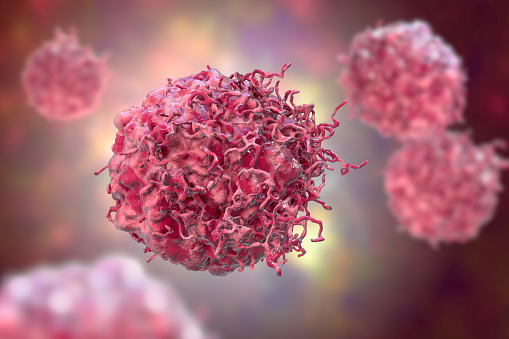Although receiving a cancer diagnosis can be devastating, recent scientific and medical breakthroughs have given patients and their loved ones new reasons to be hopeful. Evidence from several cancer survivors shows the importance of a carefully planned treatment strategy. Patients now have more options than ever before as novel cancer treatments are being developed at
Although receiving a cancer diagnosis can be devastating, recent scientific and medical breakthroughs have given patients and their loved ones new reasons to be hopeful. Evidence from several cancer survivors shows the importance of a carefully planned treatment strategy. Patients now have more options than ever before as novel cancer treatments are being developed at a rapid pace. These treatments, which may include immunotherapy and other targeted pharmaceutical drugs, may lead to remission or perhaps a cure. In this article, we will discuss the present state of cancer treatment choices and their potential for alleviating suffering and bringing about recovery from this terrible disease.
Surgery
Keep in mind that there is a wide range of surgical approaches to treating cancer. Multiple factors, such as the nature and extent of the malignancy, the patient’s general health, and the surgeon’s expertise, influence which surgical approach is best for every individual patient.
The most typical cancer-related operations are listed here.
Breast tumor removal operation is called a lumpectomy. Partial mastectomy is another term for this procedure. When breast cancer is detected at an early stage, a lumpectomy is a typical surgical treatment option.
A mastectomy is a procedure in which both of a woman’s breasts are surgically removed. Women diagnosed with late-stage breast cancer may consider a mastectomy as a treatment option.
The removal of the prostate gland through surgery is known as a prostatectomy. Men who have been diagnosed with prostate cancer at an early stage often receive the recommendation to have a prostatectomy.
X-rays and other forms of high-energy radiation are used in radiation treatment to kill cancer cells. Radiation therapy can be delivered in a variety of ways, including through the use of external radiation therapy devices or through the implantation of radioactive materials at or near the tumor.
Chemotherapy
Chemotherapy is the practice of treating cancer with pharmaceuticals. Chemotherapy can be administered in a variety of ways, including orally and topically (on the skin), not just intravenously (IV) (as a cream or ointment). It’s often administered in cycles, wherein each cycle consists of a treatment phase and a maintenance phase. Combining chemotherapy with other therapies is standard practice.
Chemotherapy has several unpleasant side effects, including fatigue, sickness, vomiting, hair loss, mouth sores, and an increased risk of infection. The potential for life-threatening side effects, such as organ failure or an allergic reaction, must be considered.
All cancer patients are not good candidates for chemotherapy. Before considering chemotherapy as a treatment, your doctor will take into account your current health status, the details of your disease, and the outcomes you hope to see.
Radiosurgery
Radiosurgery is a technique used to remove cancerous tissue from the body. Radiation therapy targets the tumor specifically while leaving healthy tissue unharmed. For this reason, radiosurgery is a great option for people whose tumors are very minor and contained to a small area.
Patients undergoing radiosurgical procedures generally go home the same day. Less than an hour of leisure is all that’s needed to get back to a normal day. Depending on the size and location of the tumor, the recovery period could be anything from a few days to a few weeks.
In New York, Dr. Gil Lederman oversees a world-class cancer radiosurgery facility.
Immunotherapy
Study results from humans using immunotherapy to treat cancer are promising. To hasten the demise of cancer cells in the body, immunotherapy involves stimulating the patient’s immune system. Several different immunotherapies are currently in use, and each one works in its own special way.
Immunotherapists use drugs called checkpoint inhibitors to turn off proteins that normally restrain the immune system. A stronger immune system is better able to identify cancer cells and eliminate them. Although initially tested for use against melanoma and lung cancer, checkpoint inhibitors are now also being studied for their potential to fight other types of cancer.
To combat cancer, adoptive cell therapy uses a patient’s immune cells that have been isolated and manipulated in the lab. To boost the immune system’s ability to fight cancer, the modified cells are returned to the patient. Clinical trials are currently examining the efficacy of adoptive cell therapy in the treatment of a wide range of malignancies.
Research into immunotherapy for cancer is a relatively new field with huge promise to enhance patient outcomes.
Specific attention
Targeted therapy is used to treat cancer by inhibiting the function of certain substances or genes that contribute to the development and spread of the disease. In most cases, this therapy is used in tandem with other anti-cancer medicines. Cancer cells may be killed more efficiently by targeted therapy, with less collateral damage to healthy tissue.
Research Involving Human Subjects in the Medical Sciences
Clinical trials have increased the number of treatment choices available to cancer patients. The public at large needs to know that researchers are actively testing out new cancer treatments in human subjects.
The goals, durations, and forms of clinical trials can vary as much as those of any other scientific endeavor. Others look at tried-and-true approaches for the first time in relation to a certain cancer or group of malignancies, while yet others explore unique treatments that have not yet been made available to the public. Cancer prevention, screening, and diagnosis methods can be improved through clinical trials.
Researchers perform clinical trials at a wide range of institutions, from universities and government labs to private practices and community health centers. Extensive laboratory testing is usually followed by considerable time before a drug is ready to be tested on human volunteers in a clinical research.
Talk to your doctor about the benefits and risks of participating in a trial if you’re a cancer patient considering treatment options. Because every patient’s illness is different, clinical trials aren’t always the best option for treatment. But for some people, the only chance they have of getting a good drug is through clinical trials.
Gives Help
There is a vast range of treatment choices available to people with cancer, and it is important to take each person’s unique circumstances into account when making treatment decisions. Nonetheless, everyone with cancer can benefit from supportive care, which aims to lessen illness and treatment-related discomfort.
Services including pain management, nutritional counseling, and psychological counseling can be provided as part of a larger system of care. Patients with cancer need a healthcare team familiar with the disease to provide the best possible palliative care.
Depression and anxiety are common among cancer patients. To better manage these difficulties and enhance their quality of life, they can receive supportive care.
Methods for Assessing Individual Treatment and Intervention Needs and Developing Skills in Their Implementation
Over the past few years, there has been a dramatic expansion of cancer treatment alternatives. If you’re having trouble figuring out what to do, maybe reading this can help. While deciding on a course of treatment, bear the following in mind:
If that’s the case, then why bother trying to treat it?
Some cancer patients may come to understand that, barring a cure, they must settle for more conservative treatment options. How openly you answer this question will dictate what kind of therapy is most effective for you.
As soon as possible, please inform me of the potential dangers of this treatment.
Some people have unwelcome consequences from the treatments they try. Signs and symptoms could be mildly inconvenient or fatal. Keep in mind the treatment’s potential for causing harm.
How long will I have to go through this therapy is the most pressing concern.
Both short- and long-term use of treatments are possible. Before beginning therapy, think about how much time you can commit to it.
How much do you think it would cost to perform this in a hospital setting?
Cancer therapy can be very expensive. One should take stock of one’s financial situation before opting to go through with therapy.
Conclusion
This has led to an explosion in the number of cancer treatments available to patients. Creating a treatment strategy for a patient entails taking into account that person’s specific needs (which may include anything from surgery and chemotherapy to radiation and immunotherapy to targeted drugs). Learn about the various treatment options so you can select the one that works best for you. If you think you need assistance, it’s best to talk to your doctor or health care team, who can provide you advice tailored to your specific situation.





















Leave a Comment
Your email address will not be published. Required fields are marked with *